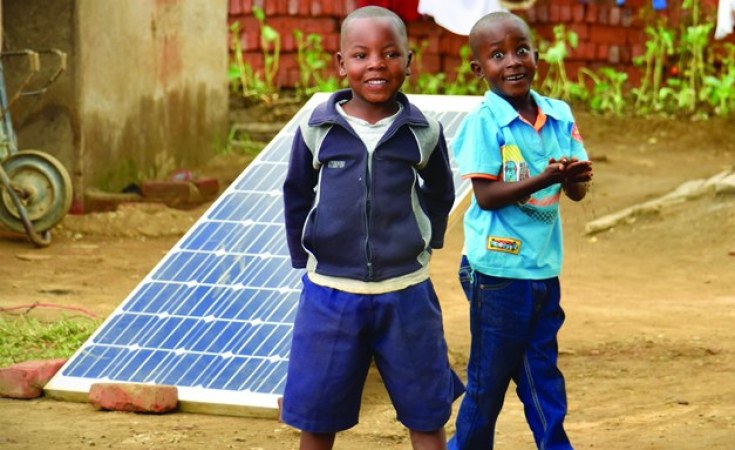The African Development Bank (AfDB) has released Financing Change: the AfDB and CIF for a Climate-Smart Africa, its 2015 Annual Report for its Climate Investment Funds (CIF) portfolio.
The report demonstrates that by the end of 2015 through its AfDB-supported CIF portfolio, 27 African nations – half of Africa – had become engaged in various aspects of climate solutions, and through 39 pilot programs are embedding them in their national development economic and social goals. The work is also significant institutionally for AfDB because it serves as a critical support in shifting the Bank’s core work to fulfill its ambitious goal to triple climate financing for Africa by 2020.
“Since the December climate summit in Paris, the global climate finance architecture has entered a new era,” stated Kurt Lonsway, Head of AfDB’s Climate Change and Environment Division and CIF Coordinator. “In line with those global commitments, the Bank itself is going through a transformation under the new leadership of Akinwumi Adesina, who became our President in September 2015; and our evolving work with countries through the CIF has been essential to carving our path toward effective support for climate-smart development. Through our CIF work, we have helped Africa’s middle-income and poor countries redefine their approach to economic and social development through programs and projects which are not only based on climate solutions but are also bankable, help change markets, engage a wide swath of stakeholders, and have a core of long-term sustainability. We see this as a crucial change for the future, not only for the continent, but for our planet.”
The report spells out three evolving developments during 2015 that helped catalyze the portfolio’s advancement.
First, by end-December half of the 54 countries in Africa had signed up to run 39 CIF pilots – some with pilots in multiple CIF programs. There are now 5 middle-income countries and one region committed to pilots for renewable energy, 11 forest-rich countries running pilots to build sustainable forest sectors, 9 climate-vulnerable countries committed to resilience programs, and 14 low-income countries committed to transforming renewables.
Second, with multiple CIF programs and a growing stream of climate finance sources, countries are looking to synergize programs and create cross-collaboration. For instance, the document reports that in Uganda and Rwanda, combining their CIF forest and resilience program missions has created the opportunity to recognize key issues such as drivers of deforestation and landscape management across both programs, enabling the resulting CIF investment plans to potentially address the full value chain. In addition, some countries are also looking to work with development partners and other funds such as the Green Climate Fund (GCF) and Global Environment Facility (GEF) to ensure that investment pipelines include programs that can be funded from different sources.
Finally, the report demonstrates the portfolio’s importance for bolstering AfDB’s institutional development efforts, providing additionality in the AfDB core portfolio. The unique CIF working model has helped open doors for innovative approaches and has helped AfDB restructure its support to Africa in a climate-smart way.
Some expected results shown in the report include:
- in CTF approved projects: 2.13 million tons of CO2 emission avoided per year;
- in SREP pilots: significant annual increase in electricity from renewables;
- in PPCR approved projects: a measure of gender balance; and
- in FIP: 204,000 hectares of sustainably managed forest in Burkina Faso.
About the Climate Investment Funds (CIF)
Established in 2008, as one of the largest fast-tracked climate financing instruments in the world, the $8.3 billion CIF provides developing countries with grants, concessional loans, risk mitigation instruments, and equity that leverage significant financing from the private sector, MDBs and other sources. Five MDBs – the African Development Bank (AfDB), Asian Development Bank (ADB), European Bank for Reconstruction and Development (EBRD), Inter-American Development Bank (IDB), and World Bank Group (WBG) – implement CIF-funded projects and programs.


